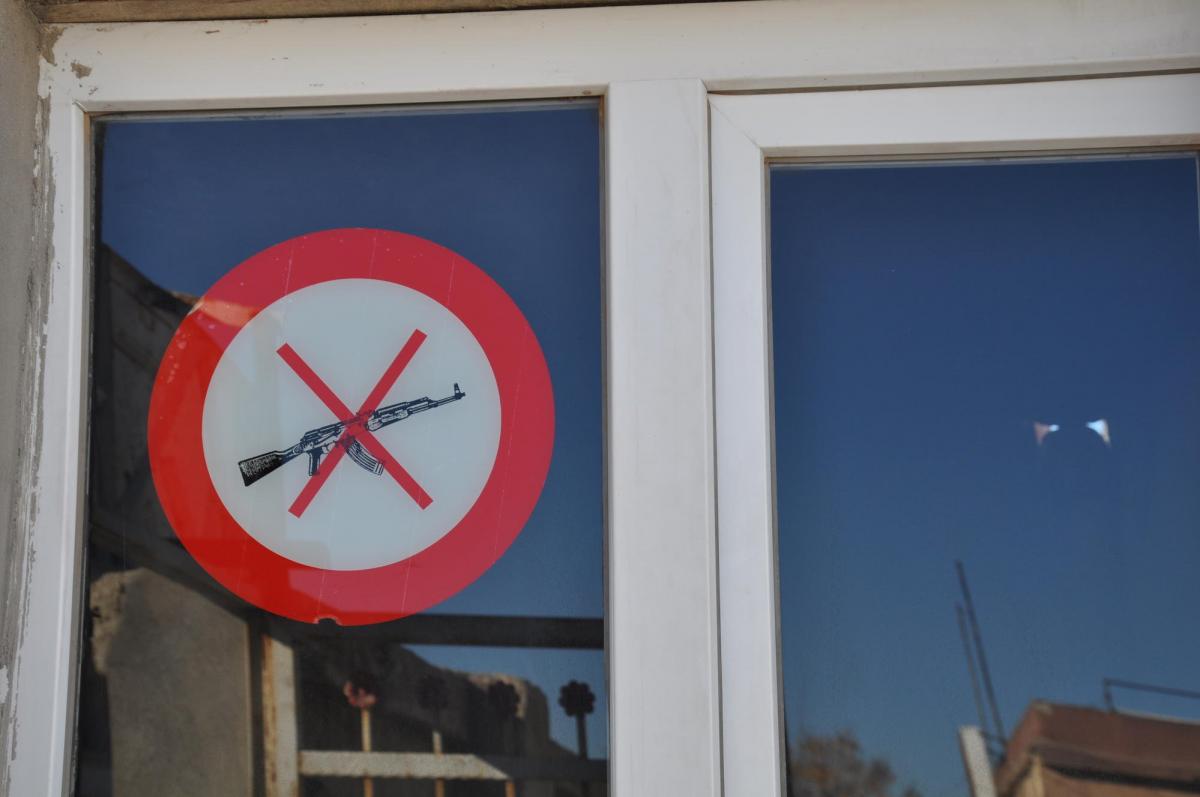Security on mission
MSF's primary objective is to bring emergency medical assistance to populations in need. To reach those who need our help the most, we often work in conflict and post-conflict regions. Each region involves different risks related to the context in which our humanitarian intervention takes place.
As an MSF field worker, you will often find yourself in an insecure environment; working in these particular regions implies an inherent risk or danger is present.
Below it is described how MSF addresses and manages these risks in humanitarian projects.
Managing risk
Although we accept that it is impossible to eliminate all risks, we do our utmost to manage these risks. Strict security protocols form an important part of risk management.
Before starting a new project, and throughout its period of implementation, we carry out a risk analysis. Each field mission has specific and detailed security regulations and plans in place, outlining strategies and specific security measures and responsibilities.
These protocols consider the diverse nature of risks MSF personnel in the field are facing and provide instructions that must be adhered to by all staff. Culturally sensitive behaviour is a must in all contexts and supports the acceptance of MSF.
Security rules
All MSF staff must strictly observe security rules and regulations. Ultimately, your behaviour and attitude are your best safeguard. Working for MSF is a voluntary choice which should be a well-balanced and personal decision.
By working with MSF, you accept MSF’s organisational choice to work in environments with various safety and security risks. Failure to follow internal security regulations may result in dismissal.
The risks
The security procedures in the project are adjusted to the context. Based on the risk analysis carried out on the ground, each project is categorized into the 3 levels of risk as described below:
Low risk
On low-risk missions, regulations may not be so strict. There may not be a curfew and you may be permitted to take public transport or even spend your vacation in the country.
Medium risk
In many MSF missions, there is a medium risk-level. Depending on the context, the following regulations may be in place:
- curfew
- limitation on movement
- use of MSF identification
In medium risk situations, personnel are often required to report their movements and positions and to carry communications devices such as radios or mobile phones.
In some contexts, limitations regarding personal conduct and access to the local community exist. Furthermore, consumption of alcohol and the choice of clothing can be restricted as these can influence the security risks for you and/or the MSF project.
When working in an MSF project, you will be perceived as a representative of MSF and your words and actions will have an impact on your own and your team’s security. There is no time off from this responsibility.
High risk
On missions with a high risk-level, your movements may be severely restricted, and you will be required to follow very specific instructions and procedures.
In some situations, you may have to temporarily suspend your activities and travel to a safer location. In most cases, once the situation settles down, you will be able to return to your work.
Finally, in extreme situations, insecurity may not allow you to leave a location, even though you may desperately want to leave. In these situations, it may be safer to stay put than to evacuate.
Chain of responsibility
Field workers must abide by security rules and procedures throughout their mission. There is a clear chain of responsibility regarding security management.
The project coordinator is responsible for managing team security at the project level. The head of mission is responsible for security management for the entire MSF mission in a specific country and overall responsibility lies with staff at headquarters.
Medical doctors, and sometimes nurses, may share responsibility for the health of other field workers with the medical coordinator who is based in the capital. Team members must respect and follow their instructions.
Personal responsibility
The elaborate risk management policy and procedures of MSF constitutes a responsibility shared by the staff member and the organisation.
In addition to this shared responsibility, every staff member must be able to assess the potentially negative impact of their words or actions, for themselves and for others, as a function of their role in the field.
If you do not feel comfortable with the security situation you may choose to leave the project as soon as the project coordinator or head of mission deems it safe to do so.
MSF will endeavour to ensure you are aware of the necessary precautions before your departure, but the final responsibility is yours.
MSF in no event delegates the management of security to other organisations.
Specific risks
You may encounter a wide range of risks while working on an MSF project. These risks can include:
Environmental hazards
Environmental hazards like disasters, disease and high levels of stress are common in MSF projects.
There are many ways to reduce the risk of diseases like malaria, TB, HIV, meningitis and hepatitis – by taking anti-malarial drugs, getting vaccinated and using condoms.
Traffic accidents
Traffic accidents are the most common cause of injury and death among field workers. Risk is increased by the unfamiliar driving habits and traffic discipline encountered in foreign countries. Traffic conditions may be especially chaotic and dangerous in conflict situations.
Due to this, MSF usually employs local drivers in the projects.
Petty crime
Petty crime happens everywhere, especially in crowded public places. You may become disoriented in unfamiliar surroundings and thieves can take advantage of this.
Foreign staff are also at increased risk of fraud and targeted robbery, including armed robbery and carjacking.
Violence
Violence is often a risk. Women may also be at risk of sexual violence in some circumstances and need to exercise particular caution. In extreme contexts, armed groups may engage in looting, kidnapping or attacks targeted at MSF and other NGOs.
Staff may be caught in the crossfire or be at risk of serious injury or death due to unexploded ordinance, landmines, shelling, and aerial bombardment.
Despite being diligent about security, there are no guarantees to avoid all risks. It comes down to understanding the risks, minimising these risks as much as possible, and making sure those who are taking the risks are fully informed.



